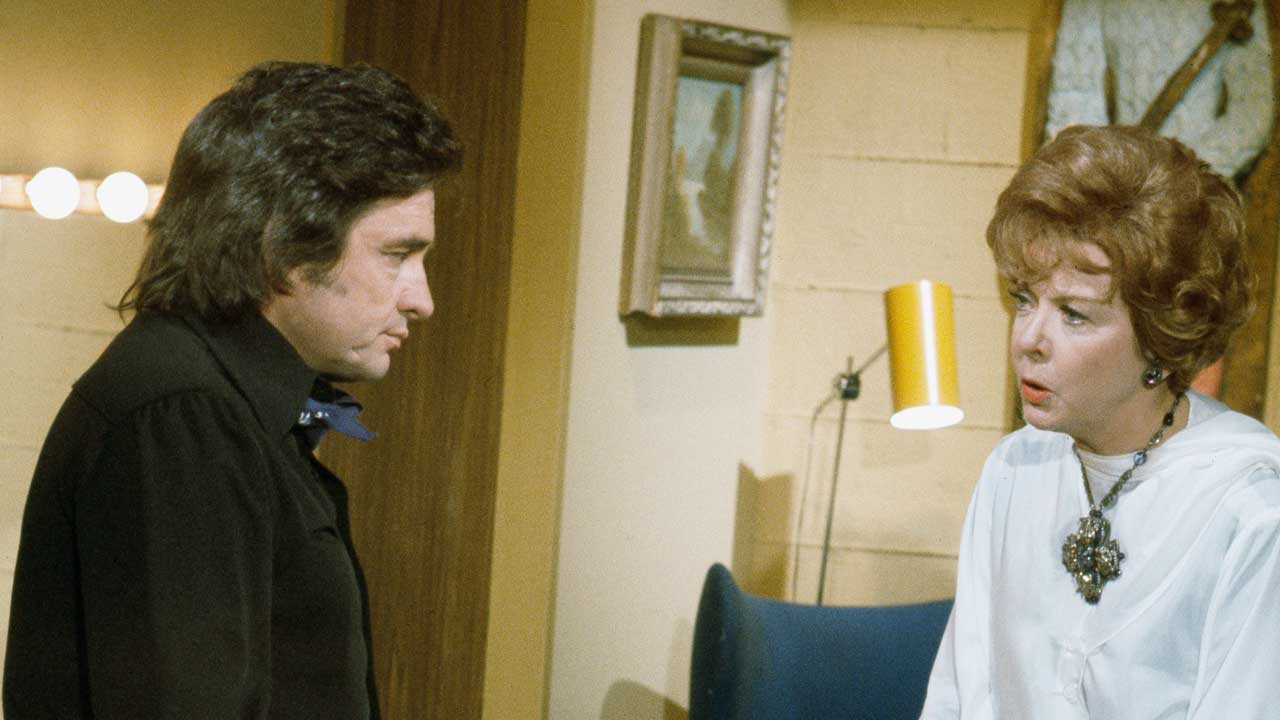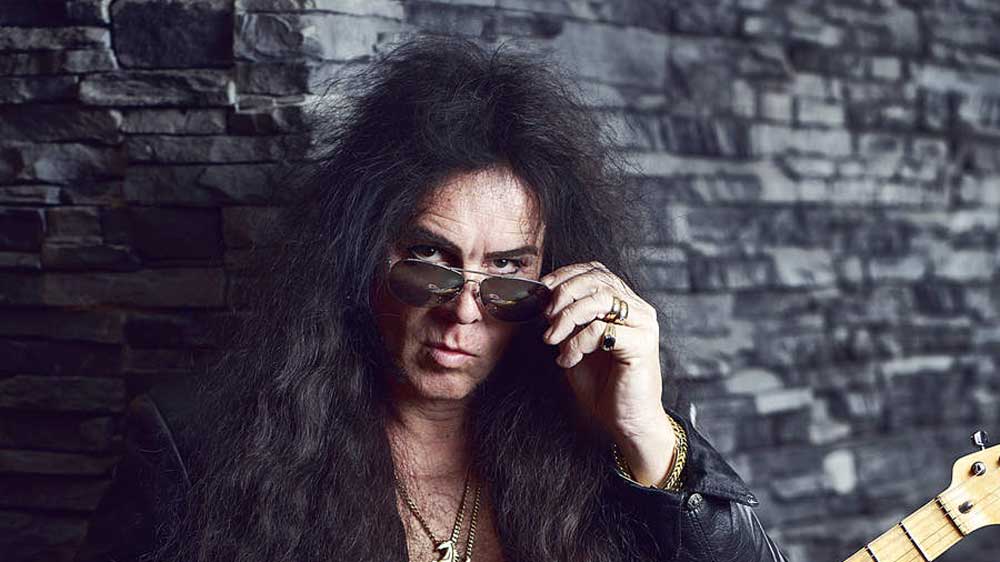Johnny Cash may not have shot a man in Reno but he murdered his wife on Columbo
Just one more thing... The story of the time Johnny Cash played country-gospel singing murderer Tommy Brown on Columbo, taking the Man In Black places he'd never been before.

On the March 4, 1974 episode of detective series Columbo, entitled Swan Song, Johnny Cash plays a version of himself – a legendary country-gospel singer named Tommy Brown.
There are some obvious similarities. Like Cash, Brown shares the stage with his wife. He's a former jailbird (despite recording two famous albums in prisons, Cash himself only ever did one night in the can). He wears black clothing. And as a man of excessive appetites, he walks the line between the sacred and the profane. It's that line that leads him to commit a double murder.
Brown's wife Edna (Ida Lupino) has him trapped in her plan to pour all of their earnings into building a $5 million tabernacle. Her leverage is the knowledge that Brown had an affair with one of their back-up singers, who was underage at the time. She keeps the girl close, to use her as a tool for blackmailing him, and prevent him from spending their money on cars, clothes and booze. “What you did is statutory rape,” Edna reminds Tommy, threatening to send him back to prison. And there begins his murderous plot.
En route to their next concert, Brown takes his wife and the young girl singer up in his private plane. Again, like Cash, Brown served in the Air Force, and had wartime experience of flying and parachuting. Mid-flight, he turns down the temperature in the cabin, lying about the heater being broken. With his wife and the girl shivering, he offers them a thermos of coffee, which he has spiked with sleeping pills. When they pass out, Brown parachutes from the plane and it crashes. He ditches his parachute in the woods, then returns to the crash site, bloodying himself up to make it look like he survived.
Enter Columbo. The offscreen relationship between actor Peter Falk and Johnny Cash got off to a bumpy start. Cash recalled, “When we were first rehearsing, he told me what my line was, and he said, 'You say so-and-so, or however you say that down there' [meaning the South]. I put my script down and said, 'We say it almost exactly the way you do up there!' I looked him full in the eyes, and he smiled, and we were friends from then on. I could see right up front that he had that perception. But 'I've been everywhere,' and I've seen almost everything.”
Cash's life experience gave Tommy Brown the cunning and craftiness to be one of the show's most memorable murderers. The cat-and-mouse that ensues between Columbo and Brown is full of sharp dialogue, like:
Columbo: "You know what the problem is? You're a celebrity. Because of you, my boss, he won't let me close up this case until I covered everything. Every loose end's gotta be tied up. Makes you crazy. So that's the problem."
Sign up below to get the latest from Classic Rock, plus exclusive special offers, direct to your inbox!
Brown: "That's a crying shame. It really is. Man with your talent, real killers loose out there, and they got you chasing smoke."
As a side note, it's interesting that both Cash and Falk had personal philosophies about the colours they wore. Of his black clothing, Cash said, “I wear black for the poor and the beaten down, living in the hopeless, hungry side of town. I wear it for for the prisoner who has long paid for his crime, but is there because he's a victim of the times.”
Meanwhile, of what he called the “symphony of brown” that he chose for his detective alter-ego, Falk said, “I felt that drab would be good for Columbo. He's a very average guy, who happens to have the brain of Sherlock Holmes. The old raincoat was my own. I felt comfortable in it. And the brown shoes were mine too. I liked them because they look like something an Italian immigrant would wear.”
At the end of Swan Song, Tommy Brown's guilt over the murder leads him back to the woods to recover the ditched parachute, like some tell-tale heart. And that's how Columbo catches him. From the final scene:
Columbo: "I had a feeling that sooner or later you would have confessed even if I hadn't caught you."
Brown: "Yeah, you're right, Lieutenant, I would have, because it was getting to me and I'm glad it's over."
Columbo: "Listen, any man that can sing like that can't be all bad."
Bill DeMain is a correspondent for BBC Glasgow, a regular contributor to MOJO, Classic Rock and Mental Floss, and the author of six books, including the best-selling Sgt. Pepper At 50. He is also an acclaimed musician and songwriter who's written for artists including Marshall Crenshaw, Teddy Thompson and Kim Richey. His songs have appeared in TV shows such as Private Practice and Sons of Anarchy. In 2013, he started Walkin' Nashville, a music history tour that's been the #1 rated activity on Trip Advisor. An avid bird-watcher, he also makes bird cards and prints.

